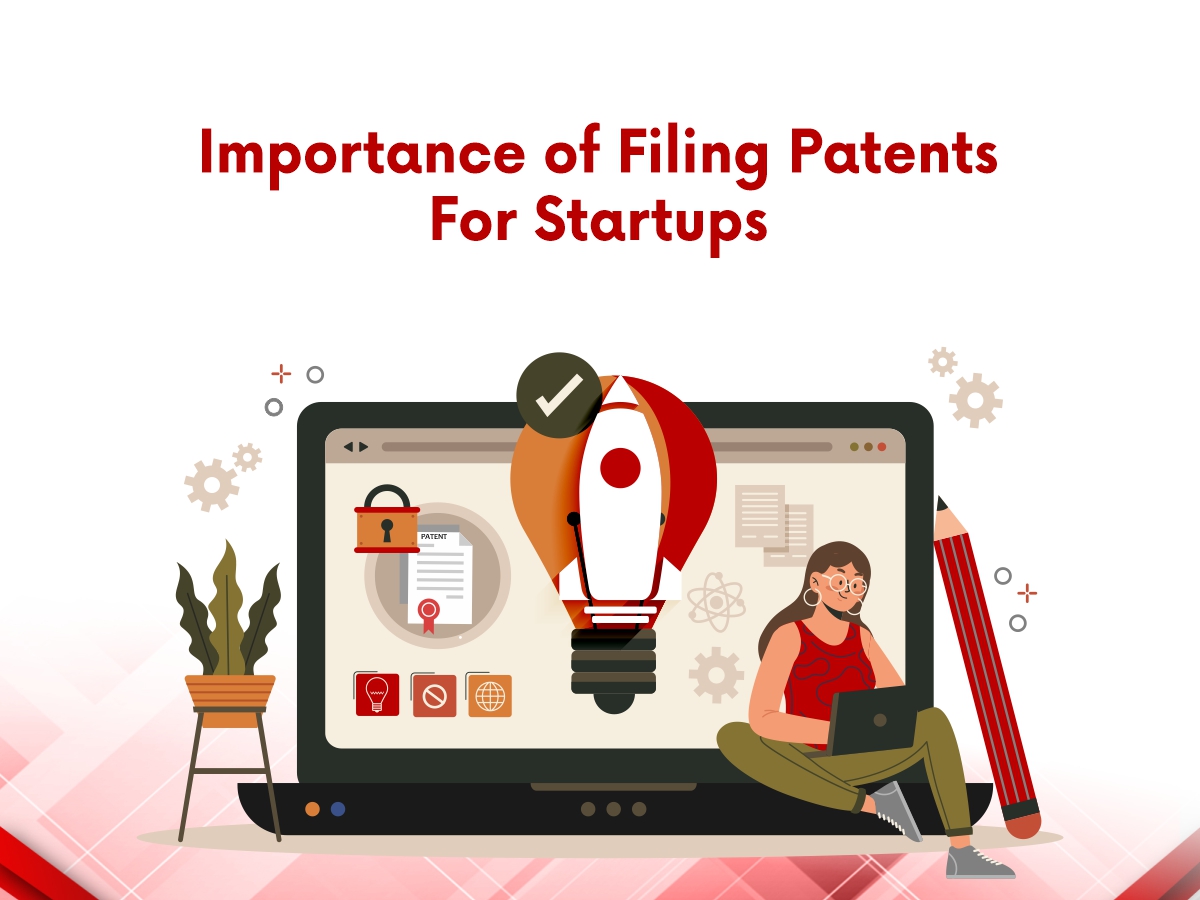
Patents give the startup the ability to restrict competitors from using their technology, which is an asset that can give it a competitive advantage in the marketplace. From a business perspective, Patents can help a company to promote economic growth and acquisitions, provide protection during partnerships and business transactions, and defend itself against patent litigation filed by others.
In fact, a patent is a powerful tool for keeping competitors away. Indian tech startups are now taking patent registration seriously as the country prepares to become an innovation hub through more investments in research and development. In addition, the Centre Govt. is doing its part by establishing a number of initiatives intended to promote India’s startup ecosystem.
Many companies neglect the importance of patents due to the difficulties of the patent application process and the need to pay a fee to maintain the patent. Because the market has become extremely competitive, this could be a major issue. Without a patent, successful product/invention become easy target for competitors, who can use or sell an idea without getting a licence.
Mega businesses may take advantage of a small company that lacks a patent for its product by producing a comparable product and selling it at a lower price. This is a bad practise that can ruin your product’s market price. Even small businesses can sell the product at a significantly lower price because they are not under the same pressure as the creator to recover the costs spent on R&D. Taking legal action against infringers will be impossible if you don’t have a patent, because you won’t have any actual evidence to back up your claim that a particular product is your own idea.
It doesn’t matter which industry your company belongs to; if you invest in research and development, you must safeguard your results. Patenting is one of the most crucial and practical way to ensure that you are the owner. Remember that an innovation is not yours until it is patented, but once it is, you can be assured that no one will take a share of your profits.
You may have heard about examples such as Yahoo suing Facebook, Apple suing Microsoft, and others. All of this occurred as a result of patient-related issues. If you have developed an innovative product and can afford it, you should file patents to avoid legal consequences and unauthorized usage of your product. Here are some of the advantages of having a patents
Over the last 18 months, the Indian government has introduced a variety of startup funds to help businesses in the country. Furthermore, under the DIPP’s Startup India scheme, the Indian government has given numerous exemptions in IP protection fees for qualified firms. Patent protection fees for startups have been reduced by 80%, while trademark protection prices have been reduced by 50%.
Furthermore, a startup can take benefit from the Patent Office’s expedited examination service, which allows for the disposal of a patent application within 12-18 months of submission. As a result, IP protection for a startup is less expensive than it would be for a larger corporation.
The most crucial thing for Indian startups to focus on is creating and identifying intellectual property while working toward innovation and protection in order to succeed in their respective businesses. As a result, under different ministries and departments the Indian government has developed a number of start-up schemes, including Expedited Patent Examination (Available for Start-ups Only), Start-ups Intellectual Property Protection (SIPP), Support for International Patent Protection in Electronics and IT (SIP-EIT), and so on.
Every reputable expert agrees that being IP-aware is critical for every firm. You will be able to not only keep yourself in competition but also grow your business, expand and defend your market price, and find new sources of revenue.
© Copyright 2024 – Wissen Research All Rights Reserved.